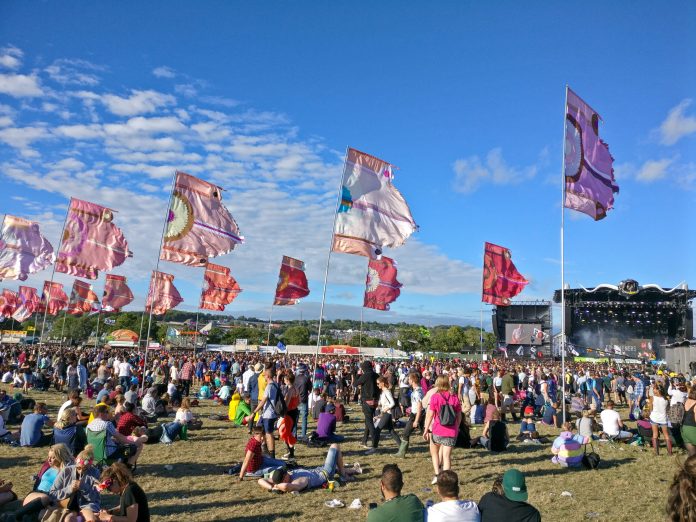Tom Young, West Cheshire Socialist Party
It was a beautiful morning on the first day of Glastonbury festival, the sun pouring over the hills, and already the distant rumble of music. It was an amazing weekend, but this year it was impossible not to feel how inaccessible the festival had become for many. Since 2019, the ticket price has jumped an eye-watering 19.6%, and the ‘food-for-a-fiver’ scheme, touted so proudly by the festival in the past, had now quietly slid up to ‘food-for-six-pounds’, and even those deals were few and far between, with a decent meal usually costing the best part of £10, and drinks costing similar.
Glastonbury’s sharp increase in price is part of a trend across the entertainment industry, with ticket prices rising dramatically over the last few years, outpacing even the large inflation figures we have seen recently. This is often excused by event companies as necessary because of rising costs of personnel, but at the very same time, we are seeing the wages of people working in the industry stagnate and shrink in real terms. From the venue cleaners, to the promoters, to the artists themselves, with many saying they can’t afford to tour anymore. And as the ticket prices rise, it is young and working-class people who are pushed out.
If people working in the industry can’t afford to live, and working people generally can’t afford to go to gigs, where is all this extra cash going? Unsurprisingly, the answer is that it is being hoovered up as profit by the large monopolies in the events industry with, for example, Live Nation-Ticketmaster reporting a staggering 44% increase in revenue since the pandemic. This short-sighted pursuit of profit will ultimately harm the industry, as skilled workers are forced to leave, artists are forced into other work, and young people can’t afford to go to gigs to support the industry.
Glastonbury at least does try to make itself accessible, with volunteer programmes for those who can’t afford the initial ticket price, but because it is part and parcel of a system which ultimately relies on capital, it ends up unable to deliver on its promise of being ‘charitable’ and ‘egalitarian’.
This is why we need strong trade unions within the industry to bargain for better pay and conditions. We need to drive profit-seeking out of the system, so that artists can perform without going broke, and so that ticket prices can fall to a level where all can take advantage of them. If we fail to do this, a culture and industry that has brought joy to so many, will crumble away for the sake of profits for the few.







